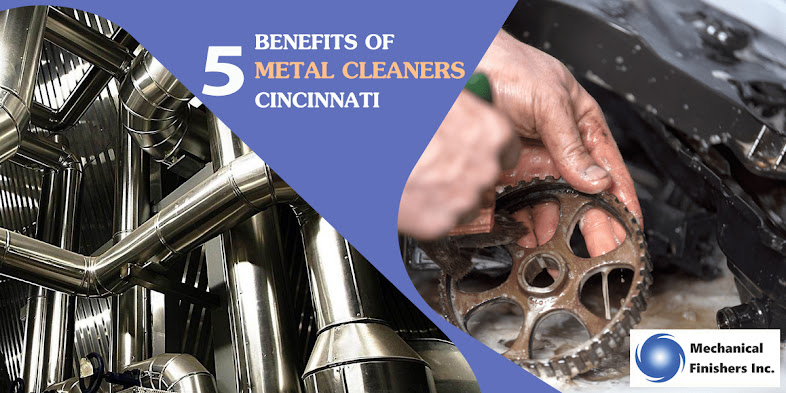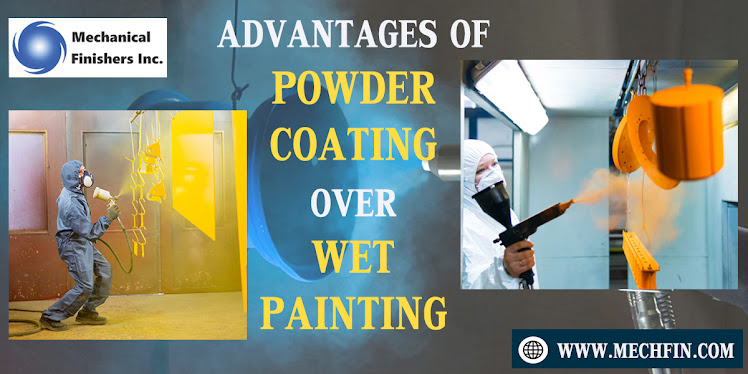5 Benefits of Metal Cleaners
Metal cleaners are effective in removing stains, oxidation, and contaminants from your metal. Some of them are water-based, which are better than solvent-based cleaners. Some metal parts only require metal cleaning services which removes dirt, smut, oils and lubricants, grease, compounds, shavings, and other surface contaminates. Moreover, they are cost-effective and versatile.
Water-Based Cleaners are More Effective Than Solvent Cleaners
Aqueous and solvent cleaners are used to clean a wide variety of metal parts. Each method offers unique benefits and drawbacks. It is important to choose a method based on the materials, requirements, and cleaning process. Water-based systems require much more energy than vapor degreasing. They can also cause corrosion and other damage to parts that are being cleaned. This makes them less effective than solvents.
Solvents are stronger chemicals, and they can dissolve grease and grime more effectively. They can also work in tight clearance areas. For these reasons, they are often recommended for small, delicate parts. However, they can be dangerous to health and the environment. To avoid these problems, solvent cleaners should be handled in a well-ventilated area. Aqueous cleaners are generally more environmentally friendly. Unlike solvents, they do not contain hazardous air pollutants.
Alkaline Metal Cleaners is Cost-Effective
Alkaline metal cleaners are highly effective and cost-efficient. They can be used for a variety of applications and are a popular choice for a wide range of industrial and commercial processes. These cleaning solutions can be diluted or used at any pH. Some types of alkaline cleaning solutions are more corrosive than others. The pH level of the solution is a key factor in its effectiveness.
Many industrial alkaline cleaners contain silicates. Silicates help the cleaner to wet out onto the surface and inhibit corrosion. However, they can form a film on the surface that may be hard to remove. This film can be harmful to the efficiency of the solution. Other alkalinity sources include carbonates and phosphates. Carbonates are typically used as a buffer for acidic contaminants. Their pH range is 9 to 9.5.
Also read about, What Are The Different Types of Metal Processing & Finishing?
They Remove Oxidation, Stains, and Contaminants
Keeping your wares looking their best, can be a daunting task if you’re dealing with a variety of materials. The good news is that you don’t have to go broke to keep your stuff looking its best. Luckily, there are a number of products on the market designed to tackle the job on your behalf. Depending on the type of metal you’re dealing with, you may need to buy a few different tools to do the trick. There are angle grinders, sanding discs and flap discs for the job. You’ll also need a cleaning solution that is compatible with the particular metal you’re tackling. After all, you’re not trying to rust your wares, you’re trying to make them look shiny and new again.
A good metal cleaner can take the sting out of the scrubbing process. One of the best options available is a commercially available solution designed for stainless steel. Unlike many industrial applications, stainless steel is resistant to pitting and corrosion, making it a great choice for high tech and home improvement projects alike. Stainless steel can become particularly dirty, so you’ll want to keep an eye on the condition.
They Remove Calcium Deposits From Hard Water
If you have hard water in your home, you may need to clean your faucets and fixtures to remove calcium deposits. Mineral buildups cause cloudy faucets, uneven water spray, and stains. The deposits may also appear on your toilet and glass doors. Hard water is defined as water that contains a high amount of magnesium and calcium. While this is a good thing, the dissolved minerals can leave stains on your kitchen and bathroom fixtures.
The best way to prevent this problem is by using water softeners. A water softener converts hard water into soft water, so it will not leave a buildup of calcium on your pipes and fixtures. But it’s not the only solution. You can also use a vinegar-baking soda descaling method to remove mineral deposits.
They Provide Excellent Cost Performance and Flexibility
Metal cleaners have come a long way since their heydays in the 1970’s and 1980’s. These days, you can choose from alkaline and neutral cleaners and washers of all shapes and sizes. Most alkaline metal cleaners are made of a trifecta of strong ingredients. They are the most effective for heavy grease and aluminum staining. Moreover, they are cheap and readily available. Using them is a no brainer for any industrial user. A metal-cleaning system is a great addition to any plant floor.
The most important thing to remember is that you should get a metal-cleaning system that is compatible with your operations and maintenance schedule. If you’re not sure what to get, ask your local metal supplier for a recommendation. This will save you from having to waste precious time and resources trying to figure out what you should buy.
When you use a metal-cleaning service Cincinnati, you can get professionals from www.mechfin.com who know how to remove paint, dust, and other particles from metal parts. Learn more about our services with Mechanical Finishing Inc. and talk to our expert today. Get a call on +1 513-641-5419 or mail us at info@mechfin.com
REFERENCE URL, https://bit.ly/3WmkFPJ


Comments
Post a Comment